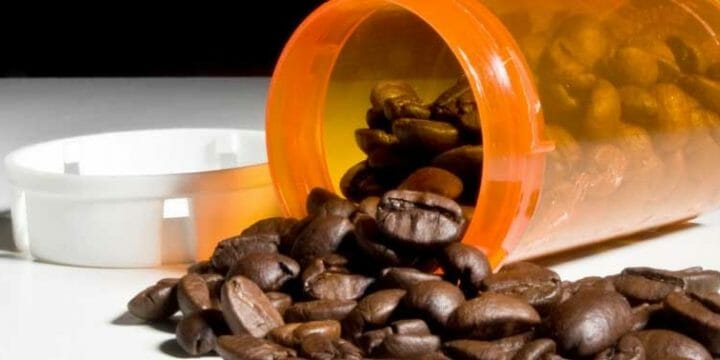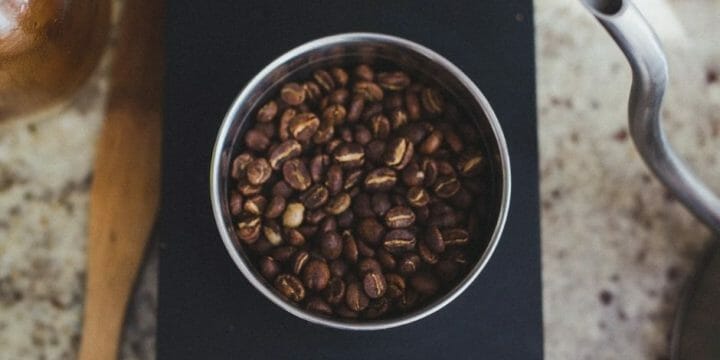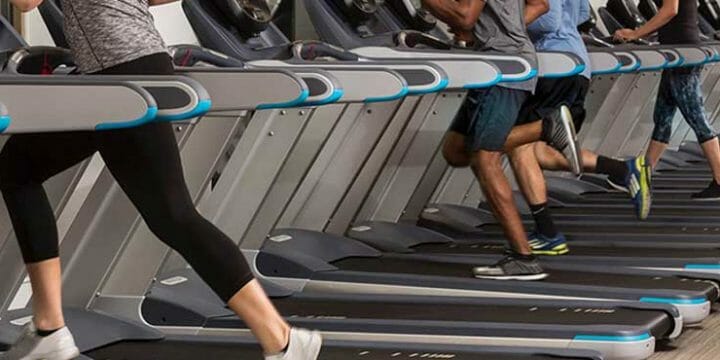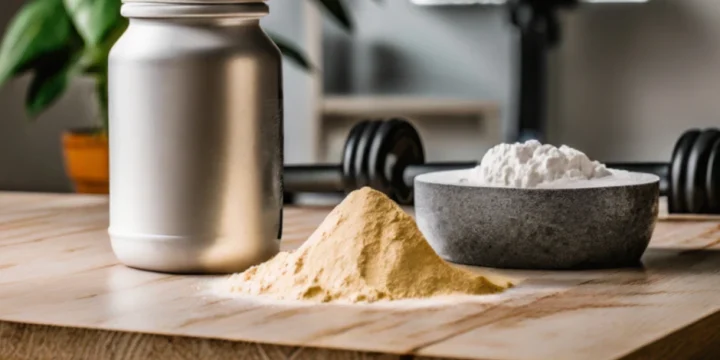As a personal trainer, I frequently encounter the coffee vs. pre-workout debate among my clients. Since caffeine is a key ingredient in pre-workouts, a cup of espresso could serve as an effective substitute.
Can a cup of coffee really be as supportive as a pre-workout to boost performance?
Let’s take a look at coffee vs pre-workout to see which is better and how they support your exercises.
Quick Summary
- Pre-workout supplements are superior to coffee for workouts. They contain a blend of performance-enhancing ingredients like amino acids and creatine, offering more than just an energy boost.
- Coffee provides a caffeine boost but lacks the comprehensive blend of performance-enhancing ingredients found in pre-workouts.
- A National Institutes of Health (NIH) study shows that consuming caffeine later in the day can shorten sleep duration, disrupt deep and REM sleep stages, and lead to insomnia.
- I prefer pre-workout supplements over just caffeine for intense gym sessions, highlighting their broader health benefits.
What Does Pre Workout Do?
What Are The Pre-workout Ingredients?

Having tried various pre-workouts, I've found that while their ingredients can vary, most share common elements like creatine and L-Citrulline, which I've found particularly effective in boosting my workout performance.
For this example, we’ll take a look at my favorite pre-workout from Performance Lab.
- Creatine: Supports growth, recovery, and training intensity
- L-Citrulline: Helps the body create more creatine
- Cordyceps: Has the potential to prevent fatigue
- L-Glutamine: Supports energy, growth, and repair
- L-Carnosine: Can enhance your workouts and prevent fatigue
- Himalayan Pink Salt: Helps your body stay hydrated
- Maritime Pine Bark Extract: Increases the flow of oxygen
What Are The Perks Of Pre-Workoust?
The perks of drinking a pre-workout for sports nutrition involve increasing your workout performance in the gym or your endurance during long runs. One great benefit is that it increases your energy while also helping your strength grow and prevent muscle pain and muscle soreness.
Apart from the caffeine boost, you can get other perks from a pre-workout drink, including:
- Prevents or delays fatigue during exercise
- Reduces protein breakdown to help build muscle
- Increases focus
- Improves blood flow
- Speeds up recovery time
- Increases muscle mass and strength
- Burns fat
Pre-workout supplements may be a great option to support overall health by boosting body strength, especially if you are continually exercising. Pre-workouts give your body nutrients it needs to push your workouts further. It can be useful for weightlifters, bodybuilders, and athletes looking to boost performance.
Other Resources You May Like:
What Are The Side Effects Of Pre-workout?

The side effects are very rare, but one common pre-workout effect is a tingly sensation. It’s temporary and is usually not something to worry about after taking a pre-workout supplement.
Since the caffeine content in a pre-workout is high, I would caution against taking it too late in the day. Caffeine could give you insomnia.
Long-term use may lead to effects like increased heart rate and blood pressure, so you might consider taking breaks from it.
What To Look For In A Pre-Workout?
When picking a pre-workout, quality ingredients are key, which is why I'm a fan of Performance Lab's Preworkout. Look for nutrients like:
- Creatine for a natural energy boost and muscle growth
- Caffeine to spike your energy
- BCAAs for growth support
- L-Citrulline to pump up oxygen in your bloodstream
But there are a couple of no-gos in pre-workouts:
- Steer clear of proprietary blends. They mask ingredient amounts, leaving you in the dark about whether you're getting enough to benefit your health and workout.
- Watch out for under-dosed ingredients. Always double-check that your pre-workout has the right amounts for your needs.
Can Coffee Be A Substitute For Pre-Workout?
No, coffee can't be a substitute for pre-workout supplements. A cup of coffee can give you plenty of caffeine, but it’s not enough to boost your overall performance.
Pre-workouts or pills with caffeine have other ingredients that support muscle growth, strength, and repair.
What Are The Benefits Of Coffee Consumption?

Studies by the National Institutes of Health (NIH) show that it is a healthy beverage. Here are only a few of the positive effects:
- Increases energy [1]
- Boosts your metabolic rate
- May help you live longer [2]
- Contains a large number of antioxidants
- Decaf can be an appetite suppressant [3]
Coffee is an excellent energy source, and it has a lot of potential health gains. But some people don't like the taste of coffee, that's why they use caffeine pills. Learn what the differences are between coffee and caffeine pills.
Are There Adverse Effects Of Coffee?
A lot of people wonder if it's cool to down coffee before hitting the gym. Sure, you can have coffee pre-workout. Just skip the sugary stuff—black coffee's better for your health and helps dodge extra calories, especially if weight loss is your game.
Full-fat dairy products are loaded with saturated fat, which can increase the levels of bad [LDL] cholesterol in your blood. High levels of LDL cholesterol can increase your risk of heart disease and stroke.
- Sally Poon, Dietician
But beware of caffeine tolerance. Constantly chugging caffeinated drinks might mean needing more for the same energy kick. My advice? Don't make it a daily habit.
And timing's crucial. Thanks to research from the NIH, we know caffeine messes with sleep. It blocks the sleep-promoting chemical adenosine.
According to a study published by the National Institutes of Health (NIH), consuming caffeine, especially later in the day, can reduce total sleep time, alter sleep stages by decreasing deep and REM sleep, and cause sleep disturbances like insomnia [4].
Is Caffeine The Best Pre-workout?
Caffeine isn't the best pre-workout, although it is an essential aspect of many pre-workouts. For intense days in the gym, I find that taking just caffeine isn't enough to keep me energized.
Also, I often get asked about energy drinks. When it comes to coffee vs energy drinks, you will get similar amounts of caffeine intake. You can take a single serving of an energy drink and get as much caffeine as a cup of black coffee.
However, know that energy drinks contain a lot more sugar, calories, and artificial ingredients. In the long run, an energy drink isn’t the best choice for your health.
I would focus on finding a pre-workout that contains caffeine and other ingredients meant to help other aspects of my health.
Other Interesting Reads:

References:
- https://www.ncbi.nlm.nih.gov/pubmed/8232842
- https://www.ncbi.nlm.nih.gov/pubmed/18559841
- https://www.ncbi.nlm.nih.gov/pubmed/23204152
- https://www.ncbi.nlm.nih.gov/pmc/articles/PMC6292246/
About The Author
You May Also Like






